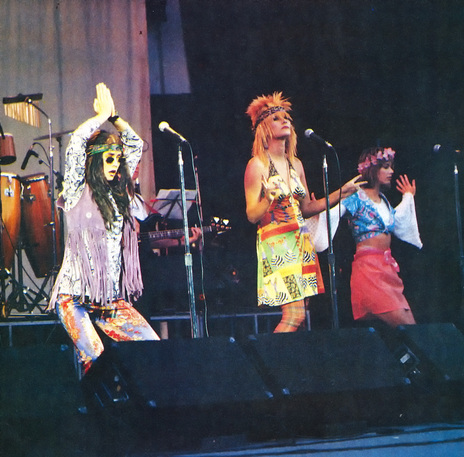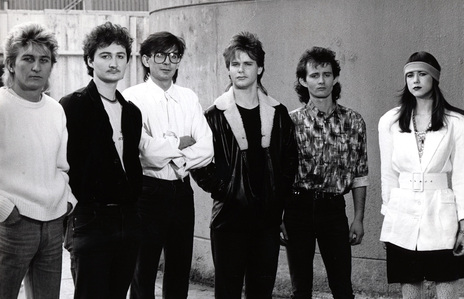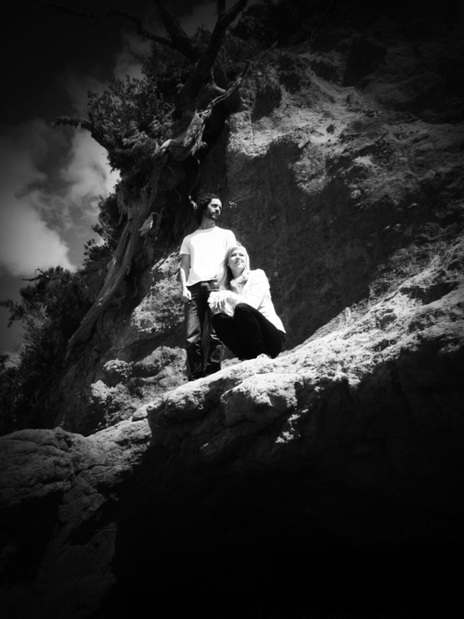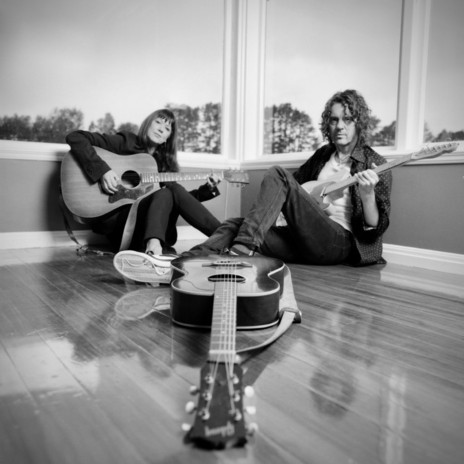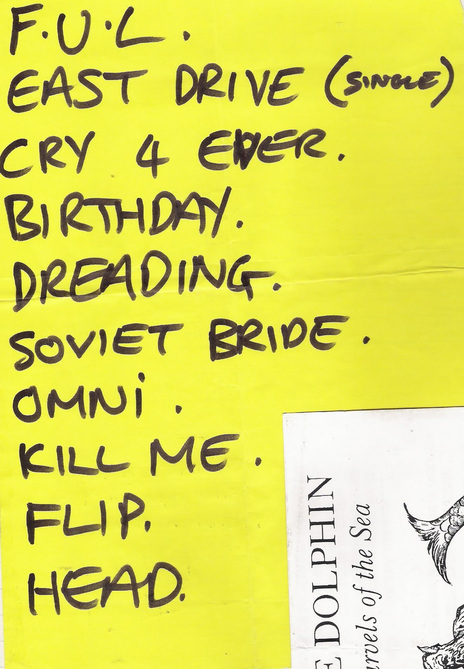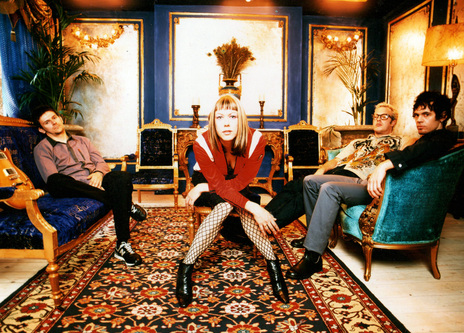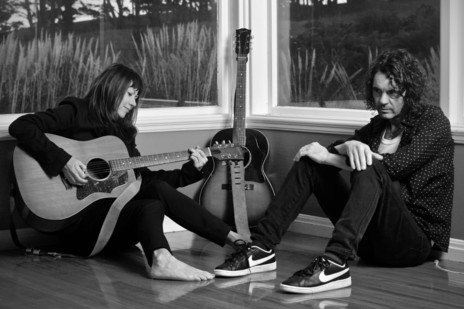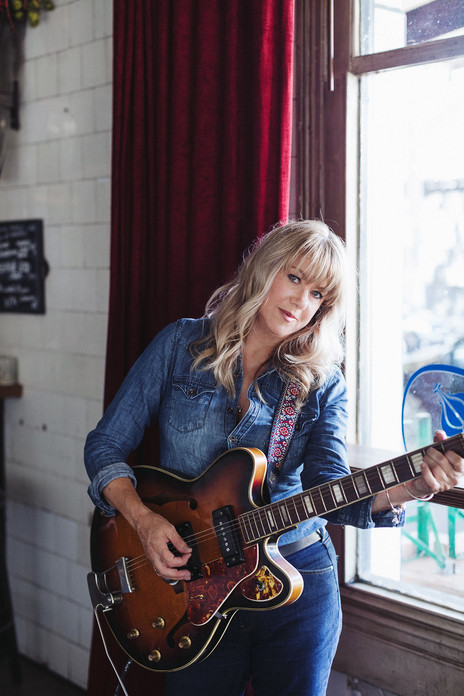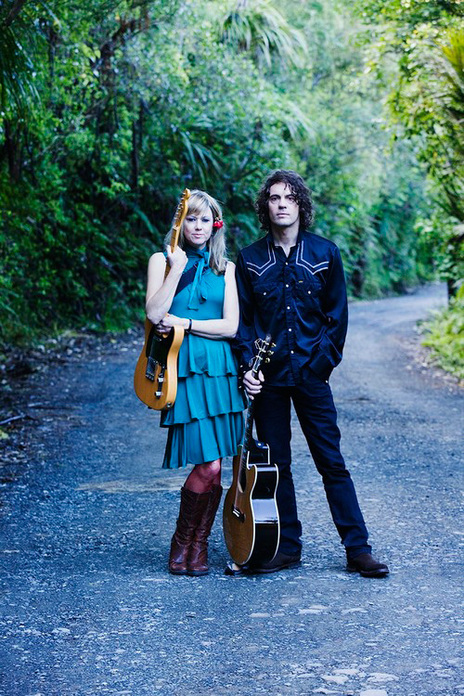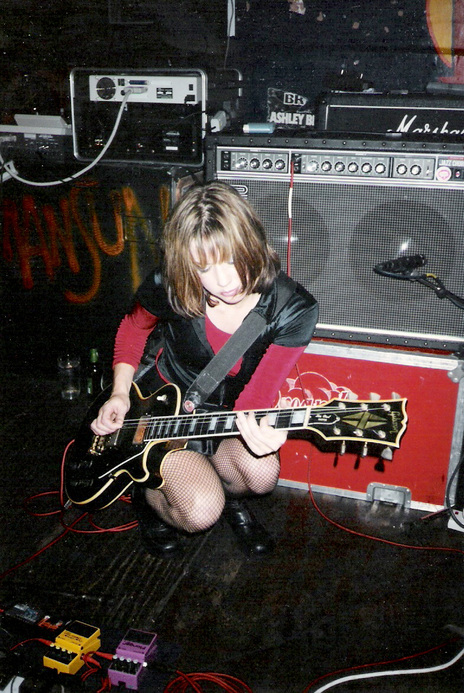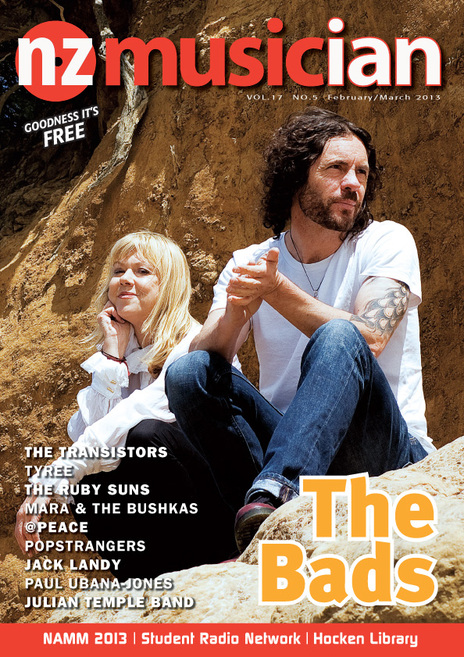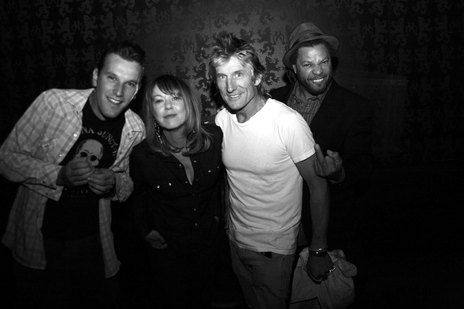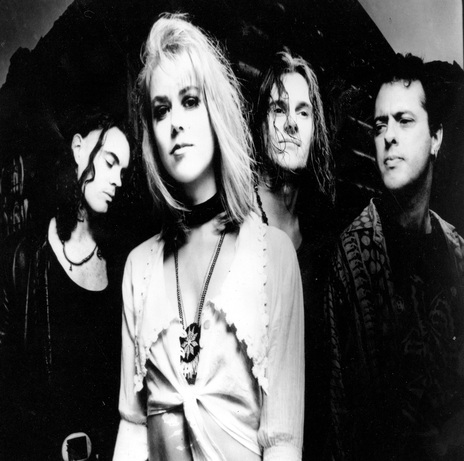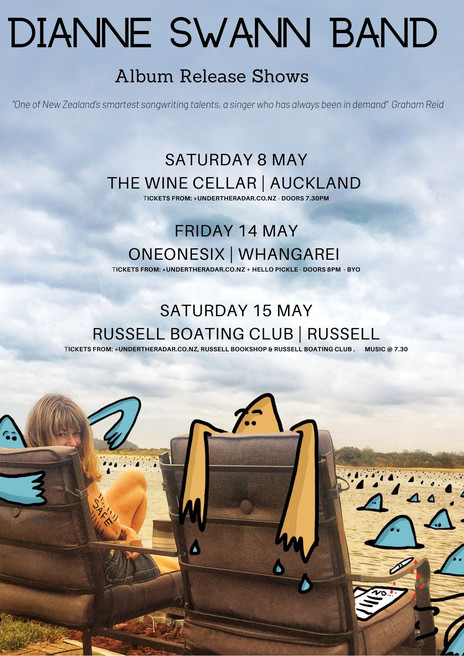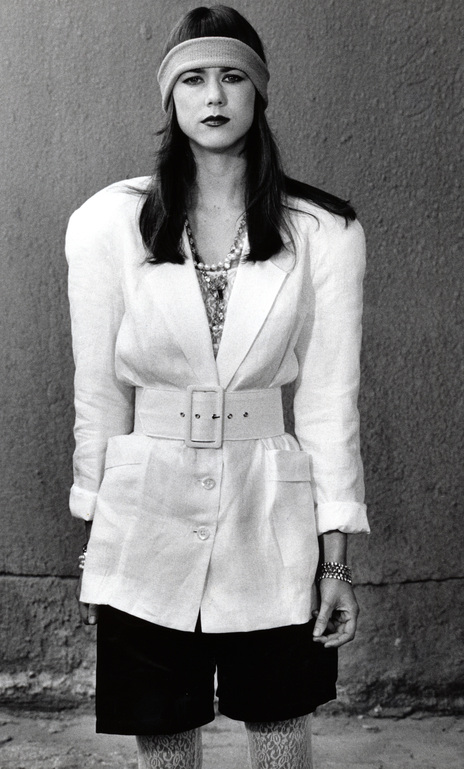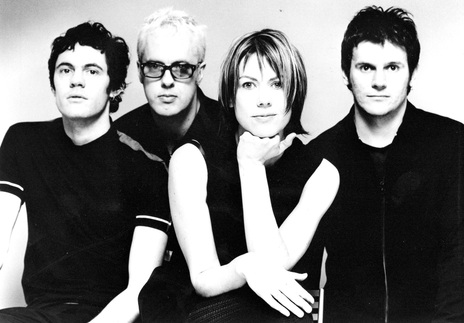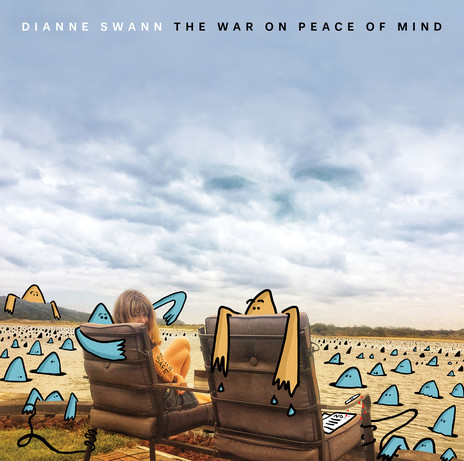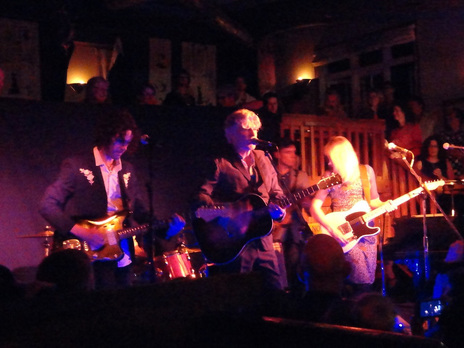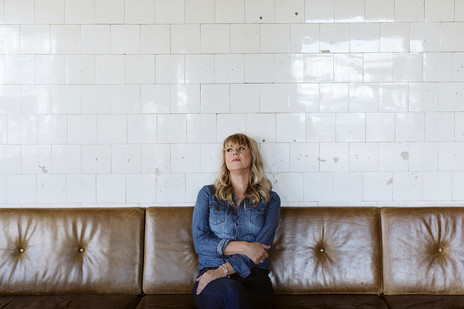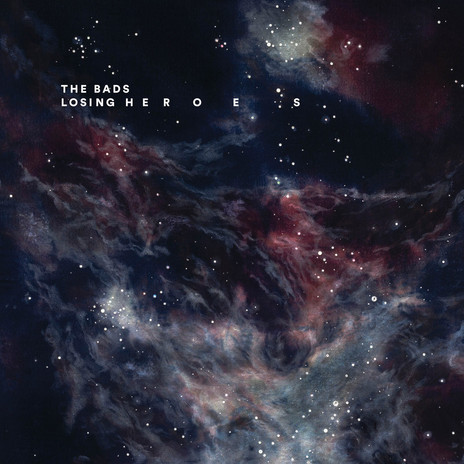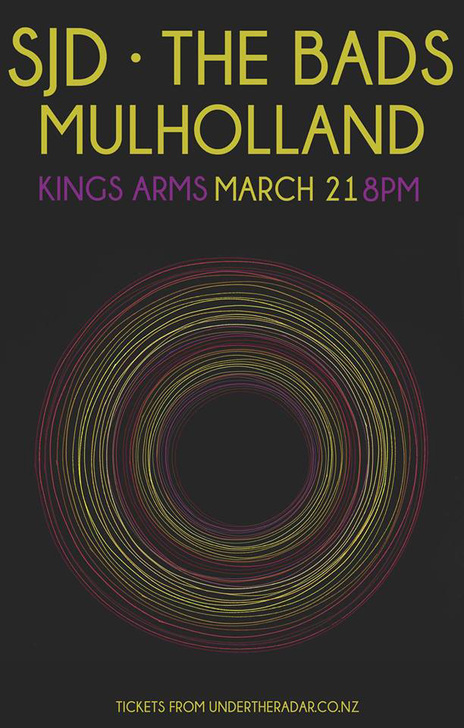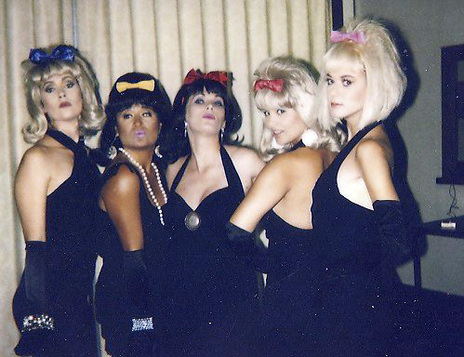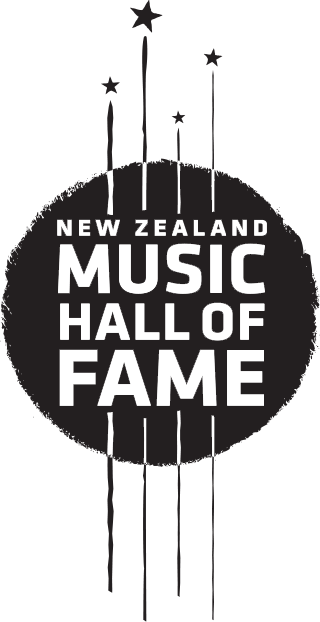Dianne Swann was born and raised in the township of Kamo in Whangarei, the name meaning "to bubble up" – a reference to the hot springs in the area. Music was a dominant aspect of her upbringing, and her career choice was always to be a musician – though in her early teens she did consider a career change to tennis player.
At a young age Swann was moved to tears by Hank Snow’s ‘I’m Nobody’s Child’, though when she saw Shona Laing perform ‘1905’ on television, this impressed her greatly – Laing was performing her own song, not covering someone else’s. However, as Swann told Ian Chapman for his book Kiwi Rock Chicks, Pop Stars and Trailblazers, the real moment came at 17, when she saw Patti Smith’s song ‘25th Floor’ on Radio With Pictures, describing herself as “mesmerized … I wanted to be her.”
Other influences include Neil Young, especially his albums Tonight’s The Night and After The Goldrush – the first album she bought after buying her own copy after her older sister left home. Also significant were The Smiths, The Cure, Iggy Pop, Sandy Shaw and Dusty Springfield – artists whose influence seeped into her writing and performances.
Swann surprised everyone when she joined cabaret covers act and vocal supergroup When The Cat’s Away.
The start of Dianne Swann’s career came in the mid 1980s, when she fronted the group Everything that Flies, with band members Clive and Bruce Sheridan (both guitarists), Wayne Bell (drums) and Peter Harrison (keyboards). The band’s first EP Bleeding Hearts was independently released on Reaction Records in 1985 and sold out its pressing, though it failed to chart. Soon, they were making a name for themselves, and won Best Video at the 1986 New Zealand Music Awards award for their second single ‘As The Sun Goes Down’, a slice of glossy 80s style guitar-and-synth pop produced by Glyn Tucker Jr.
Everything That Flies disbanded soon after, and Swann surprised everyone when she joined cabaret covers act and vocal supergroup When The Cat’s Away, with Margaret Urlich, Annie Crummer, Kim Willoughby and Debbie Harwood, all exceptional vocalists in their own right. Originally intended to be a fun form of entertainment, with the group coming together when they felt like it, they became a phenomenon. When The Cat’s Away sold out large venues throughout the country, playing to over 85,000 fans. They released a successful live album, and a couple of singles. Their cover of Blue Mink’s ‘Melting Pot’ reached No.1 on the local singles charts in 1988. Swann left the group in 1990, and later told John Russell of the Sunday Herald – “I was quite bewildered by the way it had got so popular and so accepted, and I felt that it had gotten away from what it was meant to be.”
During Swann’s stint with When The Cat’s Away, she also began a solo career, releasing single ‘Something Good’ in 1989. The song charted for nine weeks and made the Top 30. So far this has been Swann’s only solo outing.
1991 was a watershed year for her, as she moved to London and looked up a musical acquaintance – guitarist Brett Adams, who had moved there with his band The Mockers.
1991 was a watershed year for her, as she moved to London and looked up a musical acquaintance – guitarist Brett Adams, who had moved there with his band The Mockers. Swann and Adams knew each other since the mid 1980s, as Everything that Flies often supported The Mockers on tour. They formed the band Julie Dolphin with Geoff Hayden and Nick Yeatman, and signed to the then fledgling label Timbuktu, releasing the Roses EP in 1992. The following year the alt-rock album Lit appeared, soaked in reverb, and sounding similar to Belly, Throwing Muses and The Pixies.
The first single from Lit was the polished alt-pop ‘Birthday’, which had the honour of the being the NME’s second single of the week (the first being Snoop Doggy Dogg). Lit and positive word-of-mouth led to opening for acts like Green Day (who had heard ‘Birthday’ on USA college radio) and Oasis, as well as touring with Radiohead as their support act for two months. The connection with Radiohead led to Swann’s greatest exposure as a vocalist – singing on ‘How Can You be Sure’, the B-side to one of Radiohead’s most well known songs, ‘Fake Plastic Trees’. She is also seen in Radiohead’s The Astoria London Live recording as the band’s keyboardist.
The desire to get out there a bit more led to a change of label, and the band signed to Almo Sounds, a new, boutique label run by Herb Alpert and Jerry Moss, who had recently sold A&M Records, their well-known and profitable label. With a change of label came a change of name, and The Julie Dolphin became known as Boom Boom Mancini, after the Warren Zevon song. After recording an album (Mess Up Your Life), releasing two singles (‘Super Model Human’ and XFM single of the week ‘Arguments and Alcohol’), and filming videos, Alpert and Moss sold their publishing company, Rondor, and closed down Almo Sound. [Mess Up Your Life was eventually released digitally in 2023].
Swann and Adams, by now a couple, re-evaluated their career and experiences, and moved back to New Zealand in 2003.
This disheartening change in situation led to a sense of disillusionment with the music scene, and Swann and Adams, by now a couple, re-evaluated their career and experiences, and moved back to New Zealand in 2003. Settling on Muriwai Beach, Swann told Mark Bell of NZ Musician that “we were inspired … it’s pretty hard not to write music out there.”
Swann and Adams decided to go it alone, called themselves The Bads (the initials for Brett Adams and Dianne Swann), and signed to South Records, releasing Earth From Space in 2005. They changed to Mana Records for 2009’s So Alive, and then to their own The Bads label via major label Warner Music for Travel Light in 2013. The 2017 album Losing Heroes was self-released to substantial critical acclaim.
Becoming The Bads (often augmented with well-known local musical talents, including former Everything That Flies drummer Wayne Bell) signalled a new direction, with more of an emphasis on alt-country than alt-rock, leading them to achieve much critical acclaim for all four albums. The Bads have had the title track of So Alive used on the television show Hunger for the Wild, as well as producing music for such television series as Coasters, and the duo have opened for international luminaries such as Emmylou Harris and The Jayhawks. Swann’s work with The Bads is not her only musical endeavour, as she is an in-demand vocalist, touring and performing with Tim Finn, Opshop, and Flip Grater.
Dianne Swann’s music career has been a winding path, and she has seen changes in approach to the craft of writing and performing. Throughout her career, however, she has had one constant theme, as she told Ian Chapman: “It’s the song that matters.”
--
Dianne Swann released her first solo album, The War on Peace of Mind, in April 2021, after pre-empting the eight-song record with three well-received singles – ‘Show Your Heart’, ‘These Are the Days’ and the (almost) title-track ‘Losing the War on Peace of Mind.’
“I wanted to make an album that was personal yet relatable. Political, personal, focused, taut, short,” Swann told RNZ’s Jesse Mulligan in 2021. Her decision to pursue the project was uncomplicated. “I just had to do this,” she told Graham Reid for Elsewhere, upon the album’s release. “The songs were nagging at me and I find it really depressing to have songs circulating without anywhere to go. Once you set that intention of doing an album that’s what you do, and you finish it. I don’t like that feeling of having lots of snippets of songs, it makes me feel unwell.”
This conviction was put to the test, as the record endured a long road from start to finish. Recording first began in late 2019 when Steve Power, a long-time friend of Swann, offered to mix the album for free during a break in his workload. Power – a UK producer with past clients such as Blur and Robbie Williams – keeps a busy schedule, and his availability accelerated the project. Swann jumped into recording at engineer Tom Broome’s Auckland studio, with a band of Ben King (bass, vocals), Chris O’Connor (drums), Dave Khan (Mellotron), and Brett Adams (guitar). Unfortunately, the Covid19 pandemic was just around the corner, and when it hit, created serious setbacks for The War on Peace of Mind. Recording was halted by New Zealand’s lockdown, and the mixing halted by Power actually catching the virus. He managed to kick the bug, but as Swann told Jesse Mulligan, it “exhausted him quite severely”.
Patience is a virtue, and when the album did arrive, it was met with fantastic reviews. Writing for NZ Musician, Amanda Mills described The War on Peace of Mind as “an album to return to repeatedly,” praising the work as “consistent, timeless and genre-less, bearing the mark of a gifted songwriter.”
In a similar vein, 13th Floor called it “masterful,” adding “it courses across stark realities of today, love, loss, and change. Innovative and varied there are guitars, at times heavy, at times refrained, it’s alt-folk, it’s rock, there are pop sensibilities but above all, it’s Swann at her very best. Wings spread and soaring.”
Both reviews noted how Swann’s songwriting craft is palpable – an ode to her long and prolific career. For her, the concept of having been around the block can be a double-edged sword in this industry. “As an older woman you do get the attitude that, ‘You’re still doing it, that’s so amazing’. It’s so patronising. I even had someone pat me on the shoulder and say that,” Swann says to Reid for Elsewhere. “Honestly, I’ve gone into this with no expectations. I’ve become more and more like that. It’s to do with the age I am.”
Swann’s live slate is characteristically busy in 2021, with her and the band getting ready to perform album release shows in Auckland and Northland in May, before Swann joins Greg Johnson as support on his nationwide tour. These shows follow Swann’s successful stint in the art of cover songs, having toured with an ensemble of local artists for the Live Rust show (a celebration of Neil Young’s iconic album) and joining Reb Fountain for a song at the Auckland Town Hall, for The Boy Next Door, Fountain’s tribute to Nick Cave.
--
Read more: Songwriter’s Choice, by Dianne Swann.
